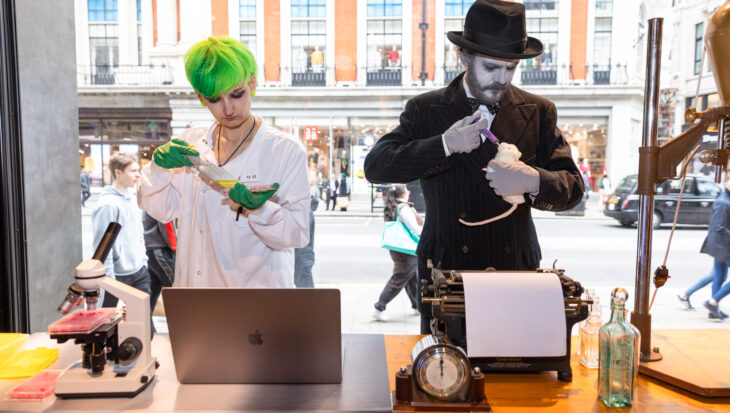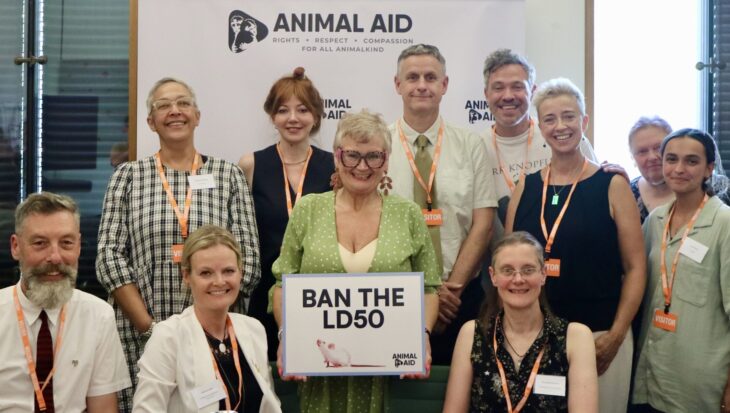Animal Aid has launched an innovative phone app that allows people to check whether medical research charities fund experiments on animals. The Cruelty-Free Giving app – which is free to download – features a searchable database of medical charities and their policies, and includes nearly 290 organisations.
The app initiative forms part of Animal Aid’s Victims of Charity campaign, which aims to end the funding of vivisection by medical research charities. Our Victims of Charity website regularly exposes shocking examples of animal experiments that have been financially supported by medical research charities, and enables members of the public to take action by submitting complaints directly to those responsible. Research exposed on the website has involved pregnant sheep being surgically mutilated and partially suffocated (supported by the British Heart Foundation), monkeys being deliberately brain-damaged and then given ecstasy (co-funded by the Cure Parkinson’s Trust) and mice being subjected to around six months of poisoning with an industrial chemical to induce cancer (co-funded by Cancer Research UK).
The new app supports a range of other resources offering key information about charities’ animal research policies. Animal Aid already produces an up-to-date online database of organisations’ policies, as well as a wallet-sized ‘pocket guide’. 135 charities have informed us that they do not conduct or fund any research on animals, while 89 have admitted that they are involved with vivisection. The list of charities with humane policies includes a number of large and well-respected organisations, such as the Anthony Nolan Bone Marrow Trust, Marie Curie Cancer Care and Breast Cancer UK.
Says Animal Aid Director Andrew Tyler:
‘We already know, from an NOP opinion poll we have commissioned, that more than 80 per cent of the public do not wish to donate to medical research charities that fund experiments on animals. Our new app will empower members of the public to make informed choices about which organisations they donate or leave legacies to, and ensure that they are supporting only those that fund humane research. As well as preventing animal suffering, supporting humane charities is much more likely to lead to the medical progress that is so urgently needed, since non-animal research methods produce results that can be translated to humans much more accurately.’
Editors’ Notes
- The app can be downloaded free of charge from the iTunes or Google Play stores, by searching for Cruelty-Free Giving
- The Victims of Charity website can be viewed here
- Animal Aid’s online database of charities can be viewed here
- An NOP poll conducted in 2011 on behalf of Animal Aid indicated that 82 per cent of the public would not knowingly donate to charities that fund animal experiments
- To arrange an interview with Animal Aid Director Andrew Tyler, please call 01732 364546.

